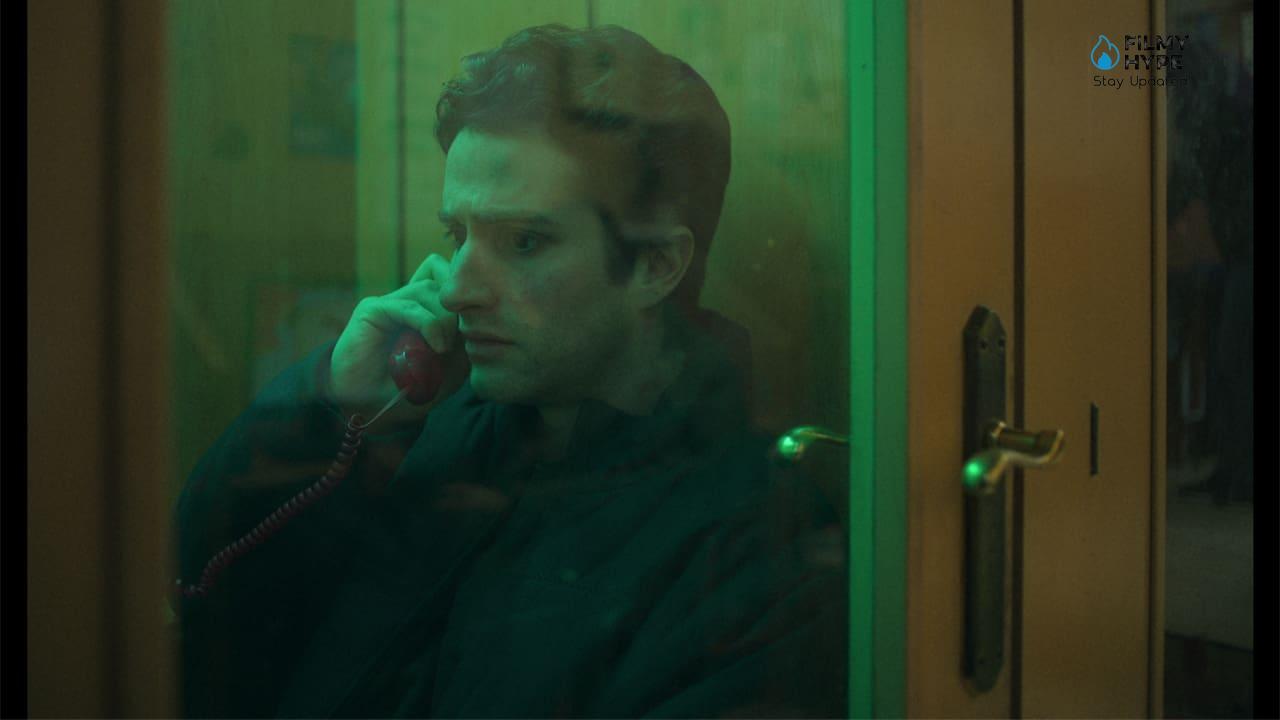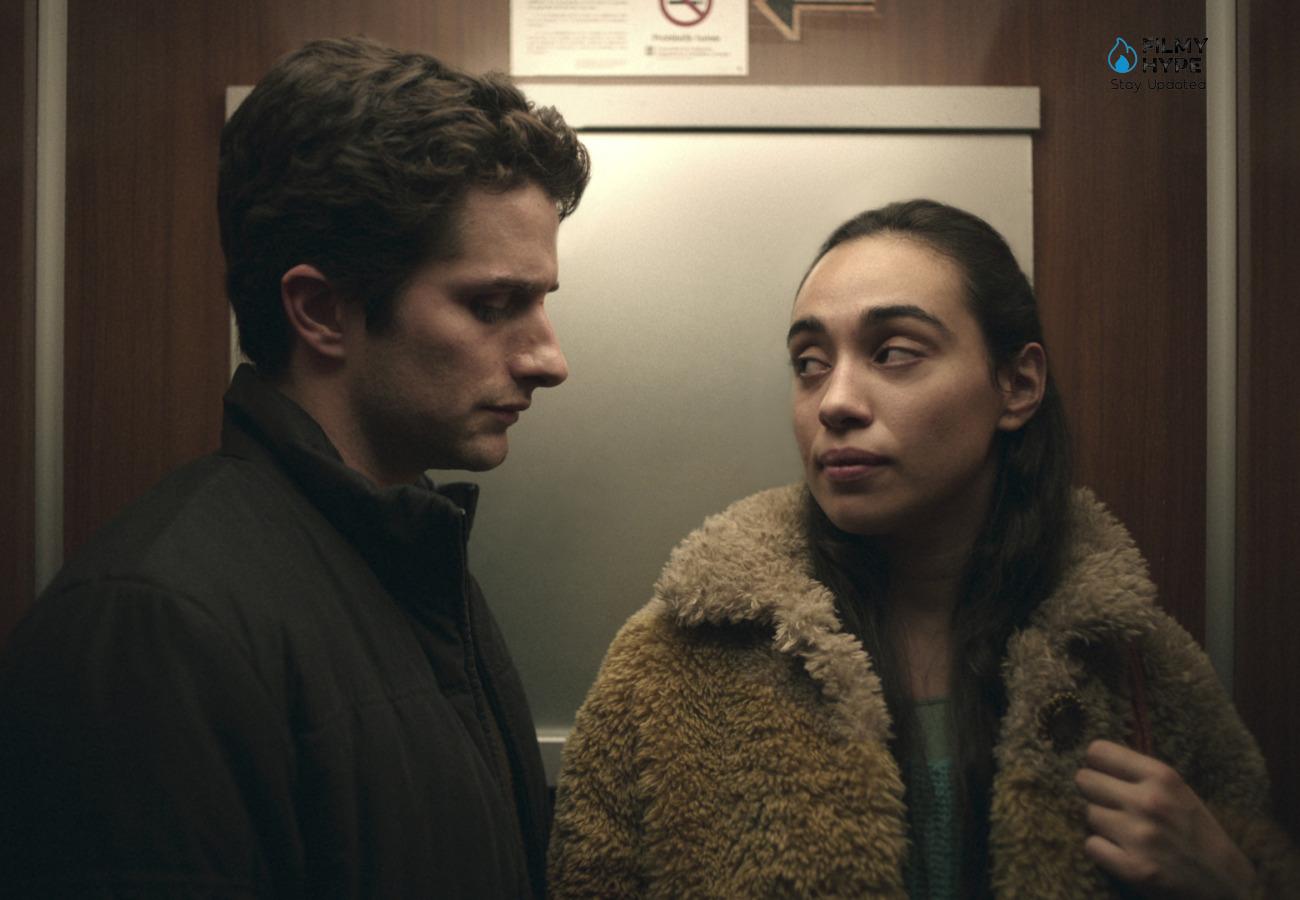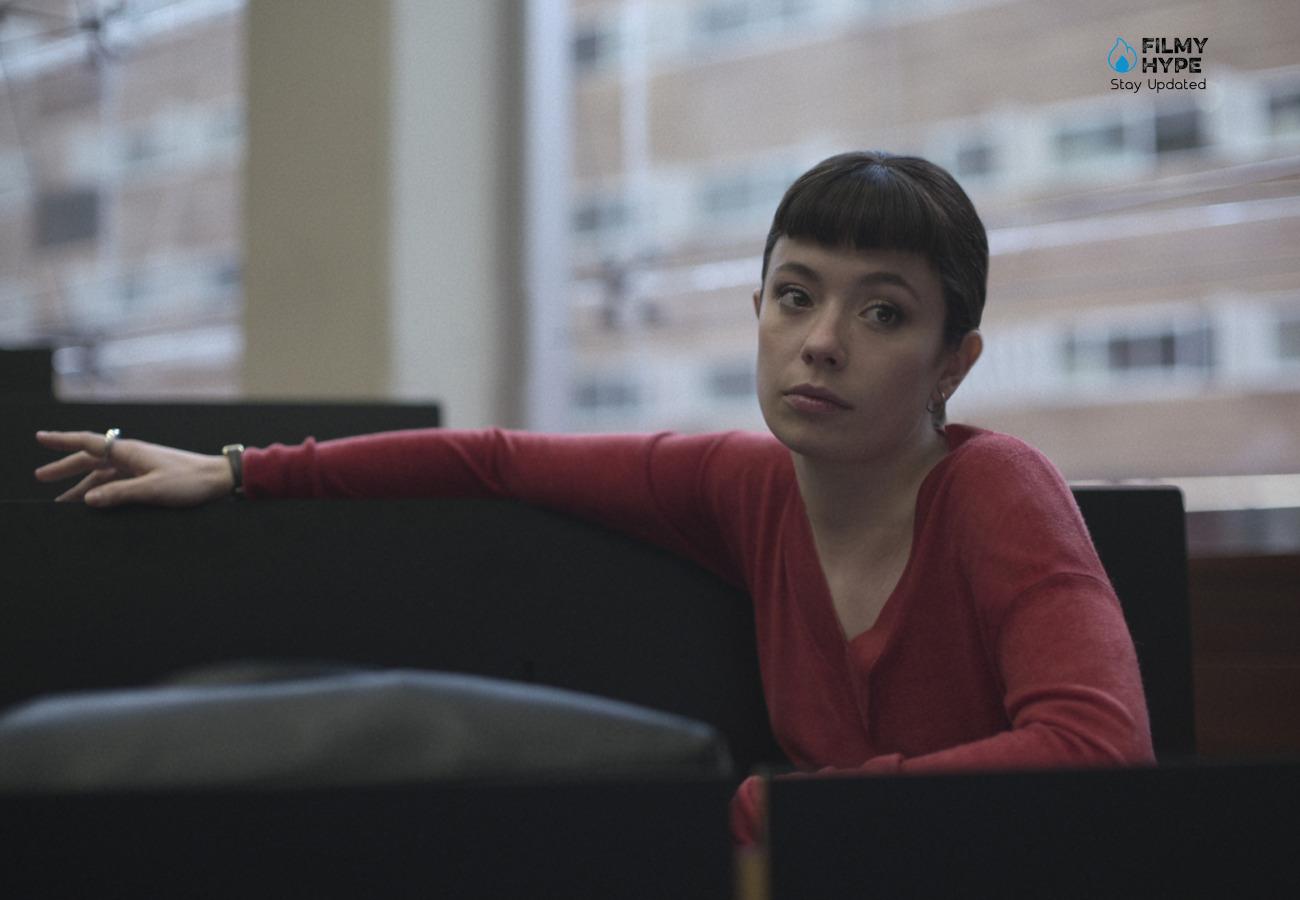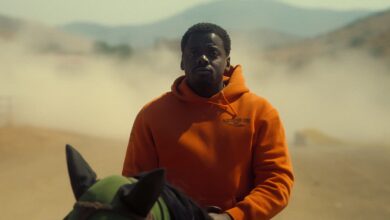I Don’t Expect Anyone to Believe Me Review: It’s an Ambitious Film, Original In Its Narrative Approach
Cast: Darío Yazbek Bernal, Anna Castillo, Natalia Solián, Alexis Ayala, Carmen Beato, Ivano Palatucci, Juan Minujín
Director: Fernando Frias
Streaming Platform: Netflix
Filmyhype.com Ratings: 4/5 (four stars)
I Don’t Expect Anyone to Believe Me (original title: No voy a pedirle a nadie que me crea) is a thriller film written and directed by Fernando Frías de la Parra. The film is based on a novel by Juan Pablo Villalobos. It stars Darío Yazbek Bernal, Natalia Solián, Anna Castillo and Alexis Ayala. From Mexico comes this thriller full of literary spirit, in which a couple finds themselves involved in a strange plot made up of dialogues, reflections, crimes, and a bizarre sense of humor. All this is seasoned with a literary background. After the worldwide success of the Netflix film, I’m No Longer Here (2019), the Mexican director Fernando Frias returns to Netflix with a new film, I Don’t Expect Anyone to Believe Me, an adaptation of the acclaimed novel of the same name by Juan Pablo Villalobos, available from 22 November on the popular streaming service.

As we will see in our review of, I Don’t Expect Anyone to Believe Me, this new project from the director investigates the limits of humor supported by a plot that manages with ease, tension, and cheekiness a combination of mafia thriller, university misadventures and an accumulation of unlikely plots. By a very amusing coincidence, humor is also the object of study in the thesis of the protagonist of the film, a writer who has won a scholarship and will move from Mexico to the Pompeu Fabra University in Barcelona to write a dissertation on the topic.
I Don’t Expect Anyone to Believe Me Review: The Story Plot
The plot of the movie I Don’t Expect Anyone to Believe Me on Netflix begins with a homeless man wandering among the dumpsters. Here he finds a manuscript by Juan Pablo Villalobos. The story told by the latter begins with an anecdote about his cousin Lorenzo, who was passionate about strange economic projects. Years later, Juan Pablo gets a scholarship to a university in Barcelona, where he can continue his doctorate in literature. Together with his girlfriend Valentina he celebrates the result and organizes to move to Spain from Mexico. Before leaving, however, Lorenzo calls him and talks to him about his latest project. After that, he is found by a criminal who takes him right to his cousin, who is tied up and gagged.

These criminals explain to Juan that Lorenzo has lost a lot of money, and he now has to pay the debt. Lorenzo dies before his eyes and a man called the Lawyer tells Juan what to do. He will have to go to Barcelona with his girlfriend and wait for new instructions. He has to go with Valentina, at any cost, no one knows why. However, things between them are not going well. Once he arrives in Barcelona, Juan must change his major to Gender Studies and find a girl called Laia Carbonell. Well, the reason why the Lawyer in I Don’t Expect Anyone to Believe Me forces Juan to go to Spain with Valentina is because he has to use her for his plan. The girl must approach Laia, an inspector who likes women.
Meanwhile, Juan writes down everything that is happening, while a breakup with Valentina occurs and he makes friends with the homeless Jimi. The Lawyer is furious about this and his henchman, Chino, who is keeping an eye on him, comes to the attention. Meanwhile, he manages to exploit Juan’s friendship with Laia to reach her father, Oriol Carbonell, an important local politician. Although they broke up, Valentina continues to be interested in Juan. Jimi offers to scare him but is later found by the police. Later, the Lawyer gives Juan a gun and forces him to kill the investigator.
I Don’t Expect Anyone to Believe Me Review and Analysis
Where I’m No Longer Here told the cultural clash between Monterrey and Queens, here Frias focuses on a rather sordid Barcelona in which Juan Pablo will live his After Hours and will have to maintain a precarious balance to stay alive. The director creates a provocative, disturbing, uncomfortable, and stimulating tragicomedy at the same time, an intelligent auto-fiction that questions Puritanism through satire, challenging the norms and contradictions of various religions and ideologies. Frías engages in a faster and more ferocious, dynamic, and experimental style, which adapts perfectly to the absurdity of Villalobos’ text, constantly searching for creative ways to reach the pinnacle of the type of humor he criticizes. Comedy and tragedy go hand in hand with hilarious comments in extreme situations, characters who break stereotypes, and others who take them to the extreme, a certain satire on different ideologies.
The idea that something can’t get worse and yet it does, and the disbelief of some characters in the face of what is happening. Among the key points of the film, there is precisely this: understanding humor as an act to face the tragedy of life, through a story that is not afraid of becoming increasingly strange. Among the oddities and acid humor of this film, there is the character of Valentina, played by the brilliant Natalia Solián, who is not detached from the comic dynamic of the film because she too is reserved for unmissable moments of humor. However, far from the more intense and entertaining storyline of the bumbling aspiring writer caught up in a crime, the narrative arc of Juan’s girlfriend brings something different to the film: that touch of the personal drama of someone who feels lost and doesn’t know how to be close to a person who he now perceives as different.

While Juan Pablo tries to survive his situation with Licenciado, her partner tries to survive in a place where, despite having one or two acquaintances, she feels alone, defeated, and ready to give up. The title of the film itself – a metaphorical request that Juan Pablo makes to Valentina implicitly asking her to stay by her side on this absurd journey – is also that of the novel written by Juan Pablo, which indirectly comments on the events narrated, however incredible they may seem. The mix between reality and fiction – or between novel and film – will become increasingly evident, as will the literary parallels, with direct references to “The Savage Detectives” by Roberto Bolaño, a book that Valentina reads and quotes. Every element of this surprising audiovisual product is masterfully managed by Frias, who holds the reins of a plot full of details and is always poised between dark humor and the disturbing absurdity of the events, which can be defined as a tragicomedy in the true sense of the word.
I’m not going to ask anyone to believe me precisely in my goals and constantly looking for creative ways to achieve them. Unlike many Mexican productions, this film does not repeat itself and distances itself from the stigma of being predictable cinema. The Netflix production, with its next screening in local cinemas and subsequent availability on the platform, promises to be an experience that no one will want to miss. The film reaches the pinnacle of a type of humor that criticizes, mocks, and satirizes certain social groups, especially supposed intellectuals while questioning why we write about what we write. Fernando Frías de la Parra proves once again to be one of the great promises of contemporary Mexican cinema. I’m not going to ask anyone to believe me as a testament to his ability to challenge conventions and offer the public a film that, despite the limitations of distribution, stands out as a milestone in national cinematography. This film is a reminder that Mexican cinema has a lot to offer, as long as it is allowed to reach the right audience.
Villalobos’s use of humor is particularly effective in this novel. The dark and often grotesque situations are juxtaposed with the protagonist’s sardonic wit, creating a balance between the disturbing and the humorous. This approach allows the reader to engage with the novel’s darker themes without being overwhelmed by them. The novel also offers a sharp critique of academia, particularly the world of literary studies. Juan Pablo’s encounters with pretentious academics and their convoluted theories provide a satirical commentary on the often insular and self-serving nature of intellectual pursuits. Overall, “I Don’t Expect Anyone to Believe Me” is a captivating and thought-provoking novel that defies easy categorization. It is a darkly comedic exploration of violence, deception, and the blurring of lines between reality and fiction. Villalobos’s unique voice and sharp observations make this novel a worthwhile read for those seeking a challenging and engaging literary experience.
I Don’t Expect Anyone to Believe Me Review: The Last Words
I Don’t Expect Anyone to Believe Me, it’s an ambitious film, original in its narrative approach, especially when it plays with realism and the absurd: it is a very entertaining gem not to be missed on Netflix. If in I’m No Longer Here the cultural clash between Monterrey and Queens was narrated, here the jump is to a rather sordid Barcelona where Juan Pablo will live his own After Hours and must maintain a precarious balance to stay alive. A provocative, disturbing, uncomfortable, and challenging tragicomedy. The connection of the film with Argentina is not only due to the presence of Minujín in the cast but also in the soundtrack, which includes songs like Once Upon a Time, by Indio Solari and The Fundamentalists of Air Conditioning.







